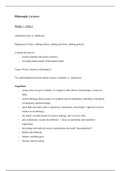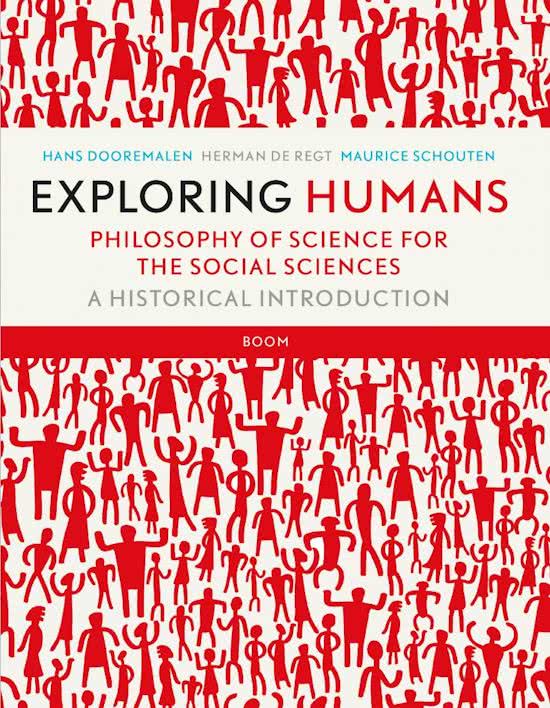College aantekeningen
Philosophy of Science (Lectures 1-10 & Textbook notes)
Notes for the first-year 'Philosophy of Science' course in the Communication Science programme at UvA. Notes cover all the (10) lectures of the course and supplementary information carefully integrated into each topic from the textbook "Exploring Humans". The combination of both offer an exhaustive...
[Meer zien]





